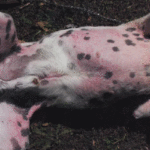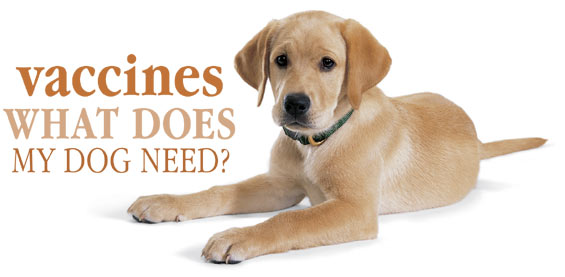
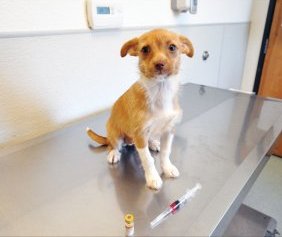 When should my puppy start his vaccines?
When should my puppy start his vaccines? Puppies should receive their first vaccines between 6 and 8 weeks of age.
Is one vaccine enough?
For puppies, vaccines should be repeated, or “boostered,” every 3-4 weeks until the puppy is 16 weeks or older. Other areas of the country only require boosters past 12 weeks of age. However, since we are a Parvovirus and Distemper endemic area, extending boosters past 16 weeks of age is the Gold Standard of care.
Why so many?
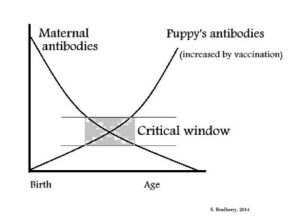 Puppies are born with antibodies from their mothers. These antibodies are meant to protect the puppy in the early weeks of life. However, these antibodies interfere with our vaccines’ efficacy. Thus, boosters are given in an attempt to catch the critical window where maternal antibodies have decreased, but before they disappear completely.
Puppies are born with antibodies from their mothers. These antibodies are meant to protect the puppy in the early weeks of life. However, these antibodies interfere with our vaccines’ efficacy. Thus, boosters are given in an attempt to catch the critical window where maternal antibodies have decreased, but before they disappear completely.What is in “puppy shots?”
Our vaccines protect against Parvovirus, Distemper virus, Parainfluenza, and Hepatitis. Parvovirus is a deadly gastrointestinal virus that is highly contagious and can live in the environment for many months and can live on bowls, our shoes and clothes, and other objects. Distemper is also a highly deadly virus which can causes respiratory, gastrointestinal, and neurologic symptoms. The best treatment for these diseases is PREVENTION. After 12 weeks of age, Leptospirosis can be included in the vaccines.
What is Leptospirosis and why is it optional?
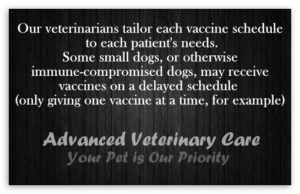
Leptosprirosis is a deadly spirochete bacteria that is shed through urine of infected animals and can cause liver and kidney failure. “Lepto,” as it is commonly called, can infect humans as well. Since Lepto is spread in urine, we recommend that dogs who are in contact with livestock, wildlife, or standing water receive the Lepto vaccine. Our vaccine also protects against shedding of the bacteria, which prevents spread of the disease. We believe in tailoring
treatments to our individual patient, and not all dogs live a lifestyle that exposes them to Lepto.
What about the vaccines from the feed store?
While these vaccines have to potential to protect dogs from the labeled diseases, their efficacy, handling, and correct administration are not guaranteed. Our vaccines are highly effective and are also guaranteed by the manufacturer – that is, if a dog becomes sick with a disease in the vaccine after an appropriate dosing schedule, the company will pay for the treatment associated with that illness. Also, keep in mind that our veterinarians include a thorough physical examination at each vaccine appointment, discuss what to expect as puppy grows, and answer any questions owners may have.
When does my dog receive the Rabies vaccine?
All dogs (and cats) over the age of 12 weeks are required by law to have a current Rabies vaccination. Rabies is 100% fatal and can be passed to people. We work the Rabies vaccine into our puppies’ vaccine schedule appropriately. Boosters may be given for 1 or 3 years after the first annual vaccine.
What side effects can occur from vaccination?
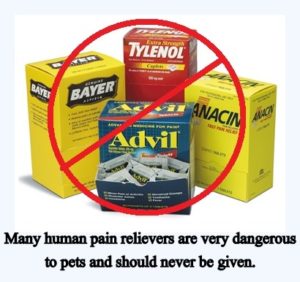
Many pets feel tired and sore for 24-48 hours after their vaccines, which is normal and usually self-limiting. Some pets act completely normal after their vaccinations. In rare cases, pets may experience an anaphylactic response which requires immediate veterinary care. It is also important to note that pets should NEVER receive human medications such as aspirin, acetaminophen (Tylenol), or ibuprofen (Advil, Motrin). If your pet is painful after a vaccine, we can prescribe a safe and fast-acting anti-inflammatory pain medication.
What about my old dog who only stays indoors?
We recommend that all dogs stay current on their vaccinations. Even indoor pets are at risk of getting loose or can come into contact with common pathogens from our shoes and clothing.
-By Dr. Shelby Bradberry
If you have further questions about your dog’s vaccine series or would like to schedule an appointment, please contact us at
Advanced Veterinary Care: 575-388-1503
Also, follow case updates and helpful articles by Liking us on Facebook – https://www.facebook.com/avcsilvercity


